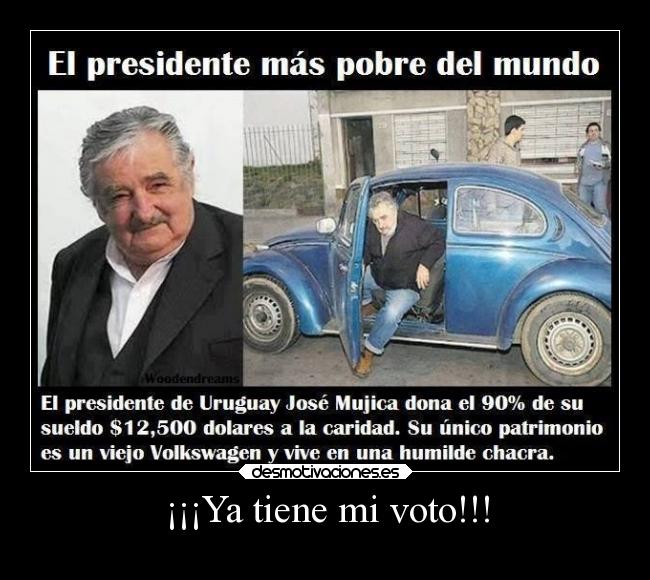Four national elections to note:
Brazil is conducting a presidential election, so one can first note that anytime there is a "decent" (ie, fair and transparent) process, that stands in great contrast to dictatorships, sham elections, and civil war.
In this case, voters are being asked to either return current President Dilma Rousseff of the left-leaning Workers Party (PT) or promote centrist Aecio Neves of the Brazilian Social Democracy Party (PSDB) to the high office. As the BBC puts it, "Both candidates have pledged to kick-start Latin America's largest economy and make it more competitive."

Brazilian President Dilma Rousseff (left) and candidate Aecio Neves (right). Brazil is the largest and most populous country in South America, and 140 million Brazilians are expected to vote. Photo from the BBC
Rousseff is credited with government spending that has lifted millions of Brazilians out of poverty, but also criticized for overspending on international sporting events - the recent World Cup and the 2016 summer Olympics.

Voters in Brazil queue for polling booth. The older Teatree gets, the more he realizes that orderly vote casting, where citizens believe in the process, is not a given in much of the world. Photo from the BBC.
Outcome: It appears Rousseff has eked out a narrow victory
Tunisia is also holding elections. This is the country that ignited what the world has come to know as "the Arab spring" (which unfortunately degenerated badly in most cases.) In this election, voters will elect representatives to a five-year term in parliament, and it is the first chance under a new constitution to weigh in since the long-time dictator Zine El Abidine Ben Ali was overthrown in 2011.

Tunisia is the northern most African country, population around 11 million, and the lone remaining positive example of what was dubbed the "Arab Spring" (where Arab nations would throw off dictatorships and oppressive rule for more responsive governance. Instead, civil wars, unrest, and clampdowns across most of these nations was the result.)

For a Westerner, this queue of western dressed Tunisians is a hopeful sign. Photo from BBC
Two leading parties likely to do well are 1) Ennahada, the moderate Islamist party that has governed Tunisia since 2011 and oversaw the writing of the new constitution. Critics call it the local version of the Muslim Brotherhood, while the party itself considers it to be pragmatic, tolerant, a promoter of women's rights, and is not even putting up a presidential candidate. 2)the party Nidaa Tounes, is being led by an 87 year old Beji Caid Essebi. This is a secular party, but Essebi was a longtime government leader in the decades past.
Hopes are high across the country that Tunisia can forge a positive approach to governance in the years ahead, avoiding the disasters of so many other Arab political movements in the past 5 years. Al Jazeera, the news organization, has a nice article on the many parties and new constitution here.
Outcome: None yet, though there was heavy voter turnout which in itself is considered as positive.
Ukraine is holding snap elections for its parliament that are likely to cement current President Poroshenko's call to orient the country towards the European Union. The outcome, if anticipated to be pro-Western, may further inflame tensions with Russia and pro-Russian separatists.
 Ukrainians are taking this round of voting seriously, sensing a real crossroads ahead. Photo from johnib.wordpress.com
Ukrainians are taking this round of voting seriously, sensing a real crossroads ahead. Photo from johnib.wordpress.comOutcome: Pro Western candidates have been given strong support.
Uruguay is also holding elections this Sunday, with al Jazeera describing the two candidates as left-wing Frente Amplio party leader and former president Tabare Vazquez challenged by Luis Lacalle Pou from the conservative Partido Nacional party. Perhaps the most interesting aspect of this election is that the most popular person in the room is the President in charge now, Jose Mujica, who is barred from another term. Mr Mujica over the past four years has donated most of his salary to aid the poor, lives on a farm in the outskirts of Montevideo where he and his wife "cultivate chrysanthemums for sale." He declined to live in the presidential palace and has kept an old Volkswagen Beetle for transportation.

Uruguay is a small country in South America with just 3.5 million. Map from kr.made-in-china.com

Immediate past president Mujica and his now famous blue Beetle." Poster from desmotivaciones.es
Outcome: Inconclusive - a second and final round is scheduled for November 30, though candidate Vazquez received the most votes today.
Compliments to all the governments and citizens who today showed they can address governance peacefully.

No comments:
Post a Comment